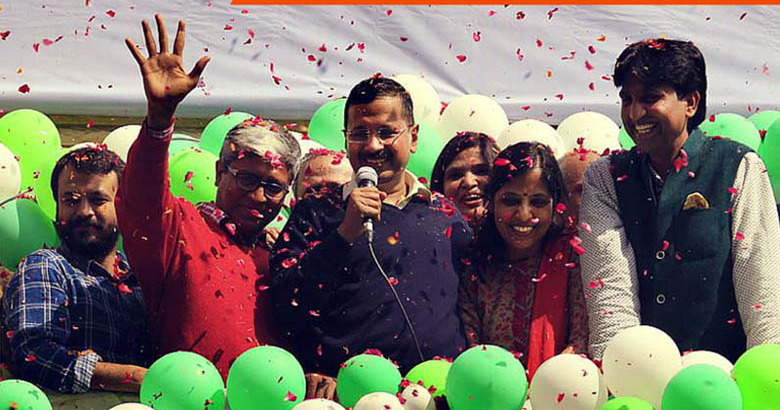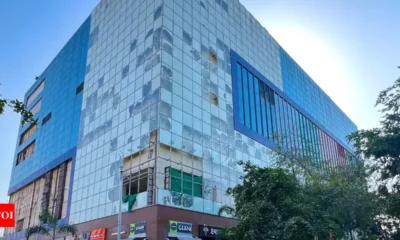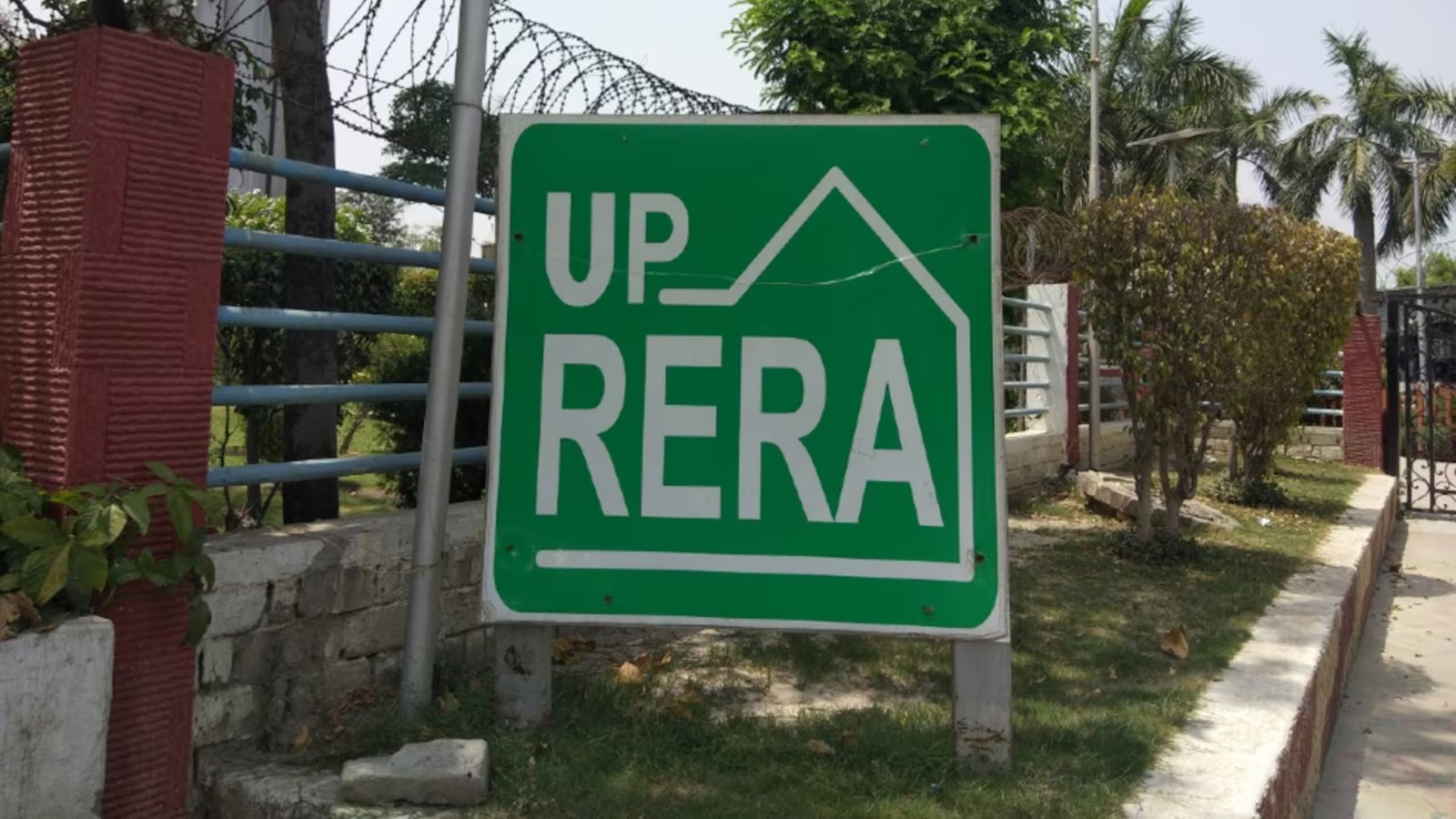Top Stories
REAL(TY) Agenda


As we were about to send the February issue of Realty & More to print, an AAP tsunami lashed the national Capital. Although the Issue deadline was staring at us, our journalistic instincts did not allow us to ignore this momentous development altogether. Fighting against time, we Just flipped through the manifestos (and Vision Document) of three contending parties in Delhi and came up with this quick recap on where they stand on the issues related to the real estate sector.
With the Aam Aadmi Party has stormed its way to power in Delhi, it’s action time for Kejriwal now! The people of Delhi, who have given an astounding verdict in favour of AAP, almost decimated the 3.11′ and wiped off the Congress, would be desperate to see Arvind Kejriwal act on his promises, and act fast While there are a host of areas across sectors on which the AAP government will have to turn its eyes on, Realty & More decided to recapitulate the promises made by the new nilirg dispensation on issues concerning real estate and infrastructure.
• Although, the February 10 result has made the Modi-Shah outfit now virtually irrelevant in Delhi and Sonia-Rahul’s party was practically never in the fray, R&M chose to have a quick look at the stands taken try them also on realty-specific areas so as to give a proper perspective to its readers.
• All three parties have been more or less on the same page when it comes to real estate, infrastructure and mobility. And the most common issue among all the three leading political parties of Delhi was the regularisation of unauthorised colonies.
• The three parties, including the victorious AAP, have promised upgraded urban infrastructure to the entire city. Kejriwal’s party has also endorsed its vision to make Delhi a ‘solar city through which it is also promising extra income by selling generated electricity to the grid.
• While the BJP included better lighting on pavements around markets and expediting the ongoing repair work to ensure more footfalls in their election advertisements, the AAP went ahead a step further to involve the villages around Delhi to provide better infrastructure and basic facilities such as power and water.
According to the AAP manifesto, the land acquisition process is one where the dependent communities often undergo extreme stress and are unable to cope with a loss of livelihood. Unless displaced communities are equipped with proper assets and skills, this may lead to massive social unrest throughout the country.
Close scrutiny of the manifestos of AAP and Congress and the Vision Document of RP shows that all the three parties haw been more lais on the same page when it comes to real estate, infrastructure and mobility And the most common ‘issue among all the three leading political parties of Delhi WAS regularisation o’ unauthorized colonies.
The Bharatiya Janata Party started work on this in The Central Government and recently passed an ordinance also. The Aam Aadmi Party and the Congress also included this as the main agenda in addition to relaxation in norms registration of properties.
The second main agenda related to the sector was to make Delhi a ‘world-class’ city. Dwarka, Rohini and Narela have already been declared to be developed as ‘smart cities’ by the Central Government headed by Narendra Modi. The three parties, including the victorious AAP, have promised upgraded urban infrastructure to the entire city. Kejriwal’s party has also endorsed its vision to make Delhi a ‘solar city’ through which it is also promising extra income by selling generated electricity to the grid.
The third main agenda linked to real estate for the three political parties was Clean Delhi’. With ‘Swachh Bharat’ mission gathering steam across the country, political parties in Delhi seemed to have used this concept for drawing voters. The promises include a proper sewage system, zero drainage problems and toilets for each home as well as in market places. While Congress pledged more and more green buildings, the AAP promised waste management and banning of plastic bags in the Capital.
The next important agenda was sheltered to everyone. While the PM’s ‘affordable housing’ dream is in the process of becoming a reality on the national level, AAP president Kejriwal has also been talking about the same. The party talks about 200 acres of land in the city which it promises to utilise for the affordable housing mission. The Congress too talked about its plan of providing housing for the weaker section and promised to deliver 25,000 flats under this category.
All three parties promised the construction of new bridges, better health care, high-end security through CCTVs and more buses in the city.
While the WP included better lighting on pavements around markets and expediting the ongoing repair work to ensure more footfalls in their election advertisements, the AAP went ahead a step further to involve the villages around Delhi to provide better infrastructure and basic facilities such as power and water.
One issue which has been exercising the mind of all stakeholders in the real estate industry is the acquisition of land for large projects. The UPA Government had come up with a new Land Act in 2013 which the new Government is in the process of amending and making more “business-friend V. An ordinance to give effect to these changes was cleared around December-end but a legislative stamp is still awaited. In this contact, it will be highly relevant to consider where AAP stands on this issue.
According to the party manifesto, the “land acquisition process is one where the dependent communities often undergo extreme stress and are unable to cope with a loss of livelihood. Unless displaced communities are equipped with proper assets and skills, this may lead to massive social unrest throughout the country”, the document says.
While calling the new Land Acquisition Act passed by Parliament in 2013, a “good beginning”, AAP would like to work towards fairer rehabilitation by • Ensuring that all acquisition did post-September 2011 (the date when the Bill was tabled in the Parliament) comes under the ambit of the new Act. • Ensure a narrow and well-defined ambit of the term ‘public purpose for which land can be acquired. • Ensuring acquisition happens only with the consent of the Gram Sabha • Making it mandatory to provide employment to one person per family that is losing land or livelihood (It is not a mandatory condition under the current Act, only a recommendation), so that those who pay the price of development, can become beneficiaries in the process.
Though the Aam Aadmi Party is silent on the changes proposed by the NDA Government in the Act and it is not in a position also to stall their passage in the Rajya Sabha, it will be interesting to see how the issue plays out in the days to come.
-



 News3 weeks ago
News3 weeks agoKW Delhi 6 Mall Onboards New Brands
-



 News4 weeks ago
News4 weeks agoManasum Senior Living Launches IKIGAI GOA, A Senior Living Community in North Goa, in collaboration with Prescon Homes
-



 News2 weeks ago
News2 weeks agoGodrej Properties Sells Rs 3k cr+ Homes of Godrej Zenith, Gurugram, within 3 days
-



 News4 weeks ago
News4 weeks agoBridging India Divide: Top 5 Tier- 2 Cities to Focus On
-



 News3 weeks ago
News3 weeks agoCommercial Realty Gets Tech Savvy: Fast Construction, Enhanced Convenience
-



 News4 weeks ago
News4 weeks agoMultipoint Connection – A Definite Boon
-



 News3 weeks ago
News3 weeks agoRBI’s Status Quo on Key Policy Rates to Help Maintain the Real Estate Growth Momentum, Say Industry Stalwarts
-



 News1 week ago
News1 week agoOlive Announces Dhruv Kalro as Co-Founder




























